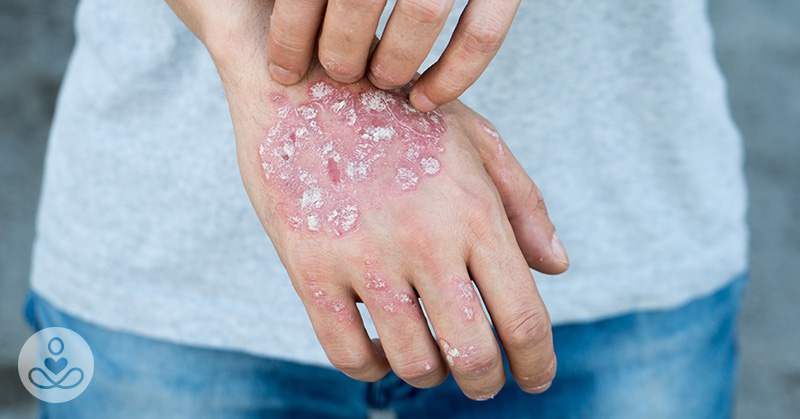Three years ago, I suddenly developed a strange rash on my face, on one side of my chin. It looked suspiciously like eczema. I couldn’t imagine what it could be. I was meticulous about my diet and had already cut out gluten, dairy, genetically modified organisms (GMOs), commercial meat, and even most refined sugar.
I Figured the Rash Would Go Away Eventually
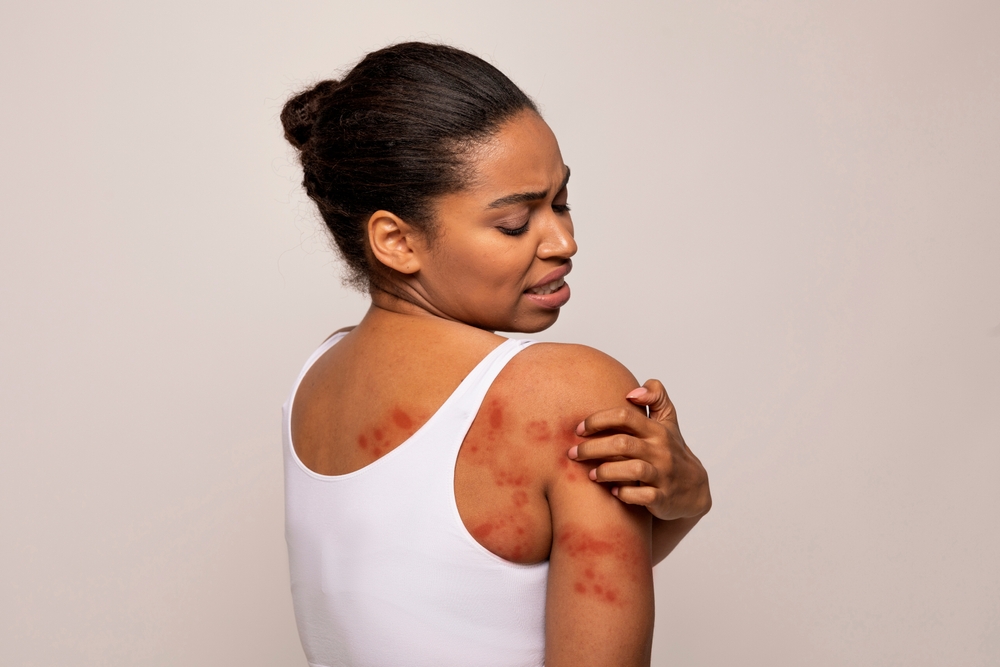
Fast forward several months and the rash was still there after I had tried essential oils, supplements, an elimination diet, and other natural remedies to make it go away. Eventually, I got tested for food intolerances and found out that my body was having a reaction to dairy—but I wasn’t eating any dairy and hadn’t for years!
Spoiler alert: I actually was consuming dairy through a probiotic that was advertised to be “milk-free” (but that’s another story). Once I cut out the probiotic and healed my gut, the eczema went away. We can’t underestimate the power of food when it comes to our health. The food we consume has the power to both heal our bodies and reduce our symptoms, but it also has the potential to cause them, and this is especially true when it comes to eczema.
Read More: Scientists Are Figuring Out What Happens in The Skin When You Have Eczema
Causes of Eczema and Atopic Dermatitis
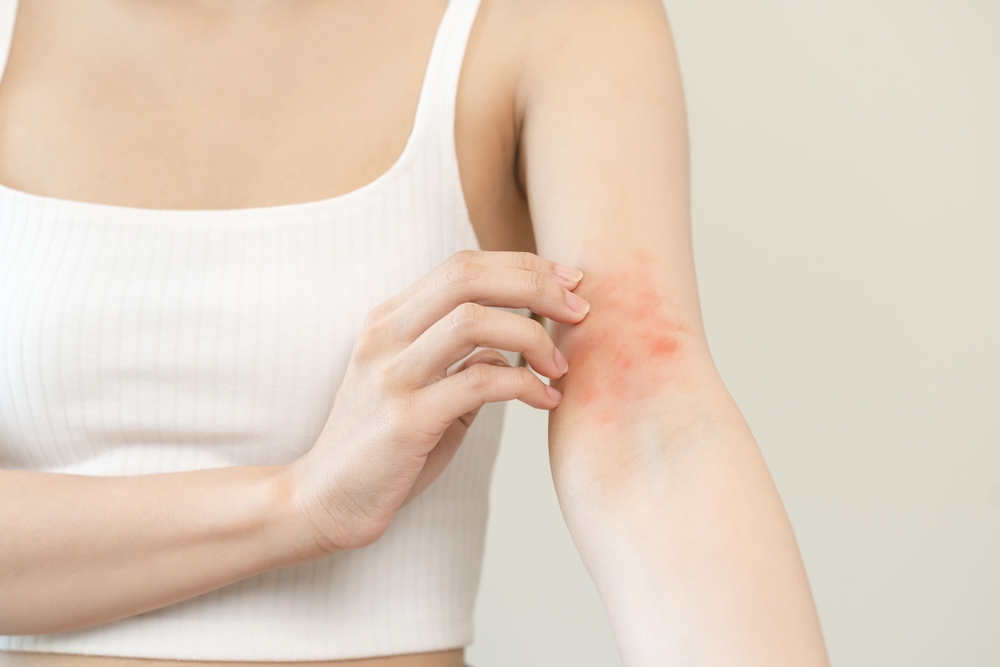
Eczema, also known as atopic dermatitis, is a medical condition that causes skin to be red and itchy. It’s actually a chronic health condition, according to some sources, and tends to “flare” on occasion. Officially, no single cure has been found [1]. There are other types of eczema, including dyshidrotic eczema, which causes itchy blisters on the fingers, toes, and palms of hands and soles of feet [2].
Contact dermatitis—an itchy rash caused by an allergic reaction to or direct contact with a substance—and seborrheic dermatitis, which causes dandruff, are other types of eczema that people experience [3]. Experts claim the specific cause of eczema “remains unknown”, presumably because it’s likely different for everyone. Everything from soap and detergent to mold, food, stress, and hormones can play a role in causing eczema [4].
How to Treat Eczema
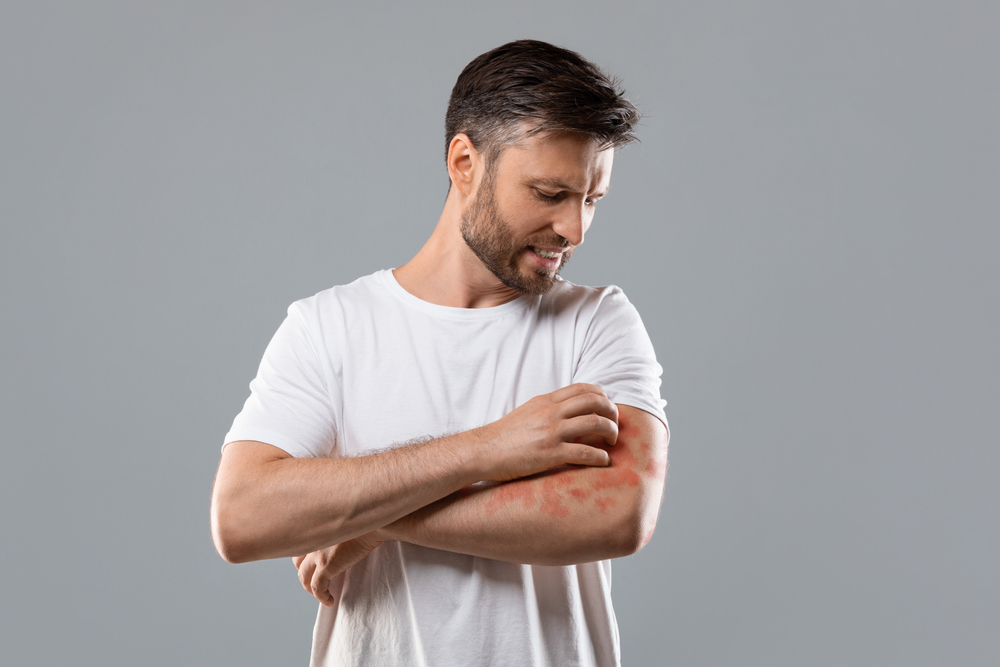
Conventional treatment for eczema focuses on a combination of prevention techniques and medical therapies, including “bleach baths” (yes, it’s what you’re thinking), immunosuppressant drugs, corticosteroids, and keeping your skin moisturized [5]. I don’t know about you, but it doesn’t sound to me like any of these things would be super helpful for eczema and also beneficial for your body at the same time (not counting moisturizing).
Holistic and integrative health care approaches to treating eczema include adjusting your diet to remove the most common allergens that could be causing your eczema, one technique of which is the elimination diet [6]. While this diet isn’t for everyone, it can be useful for those who don’t know the cause of their eczema. I always advocate for getting tested first before attempting to eliminate different foods, as this can be hugely helpful in identifying causes and triggers for eczema, such as in my experience [7].
It’s unrealistic to assume food would be the cause of everyone’s eczema, so it’s important to consider other triggers such as stress and environmental factors. However, let’s not forget that both of these factors can lead to a leaky gut, which can cause food allergies and intolerances [8].
9 Foods to Avoid That Could Make Eczema Worse
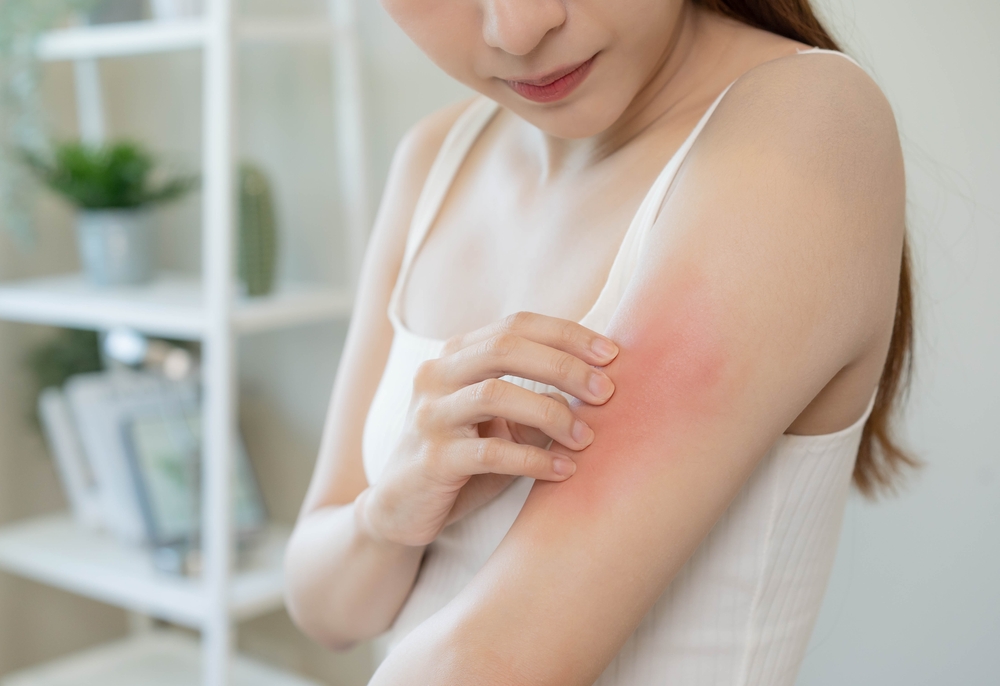
So now that we have a better idea of what eczema is, its conventional treatments, and potential holistic approaches to dealing with the problem, here are nine different foods to consider when evaluating the cause or triggers of your eczema.
1. Eggs
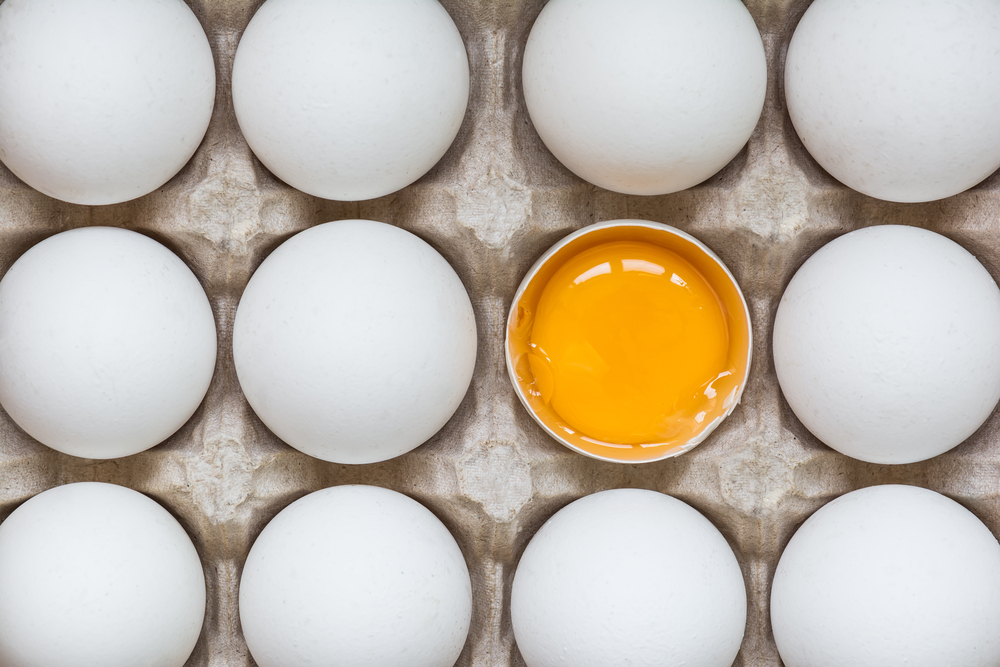
Eggs can show up anywhere, especially in processed foods, and many people react to them. In fact, experts say that 2 percent of children have an egg allergy [9].
2. Cow’s Milk
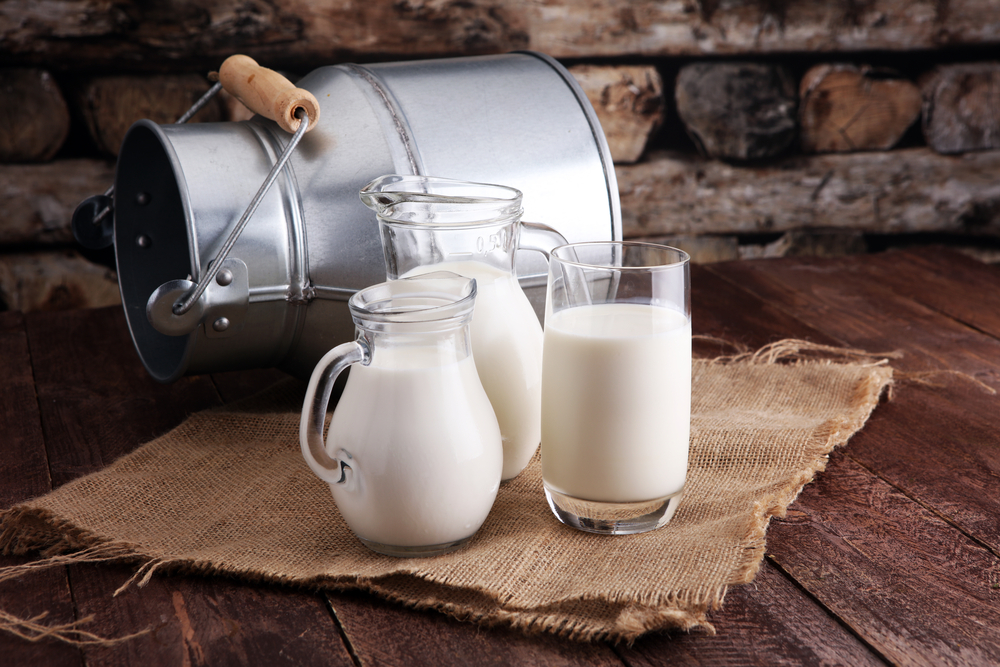
Milk is present in so many products, and anything that has cheese in it or is cheese-flavored is typically a product made with milk. An allergy to cow’s milk is the most common allergy in young children and infants [10].
3. Soy
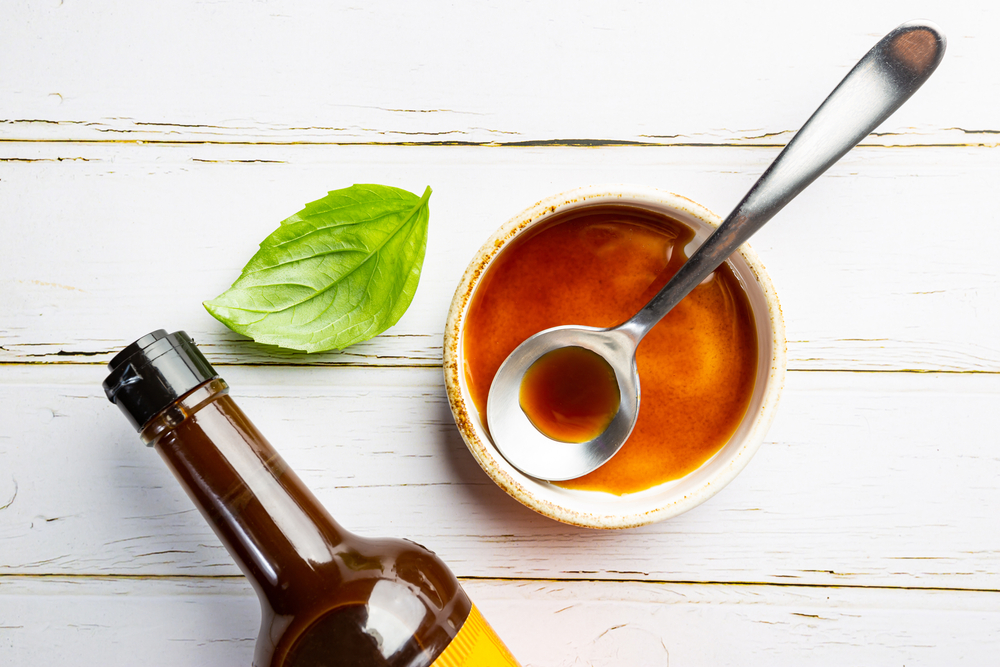
Soy is the number one genetically modified crop in the world and is present in a huge amount of processed foods [11]. If you enjoy soy, consider choosing a non-GMO version!
4. Gluten
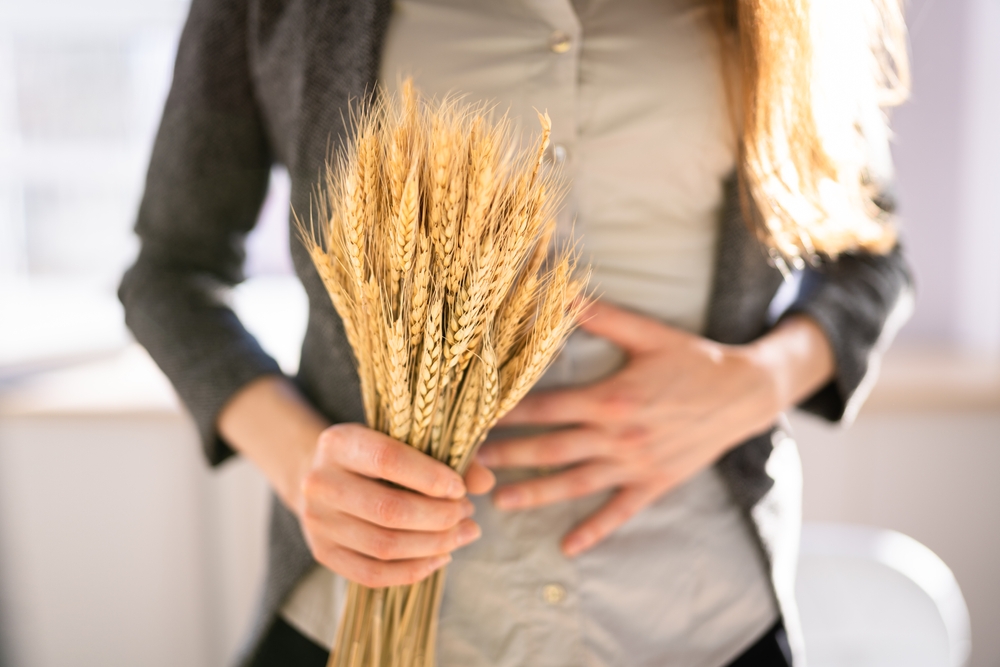
Gluten is a protein that’s present in wheat, barley, and rye, so while all wheat contains gluten, not all gluten comes from wheat. Gluten intolerance has been linked to many health disorders and conditions, including skin diseases such as dermatitis [12].
5. Fish
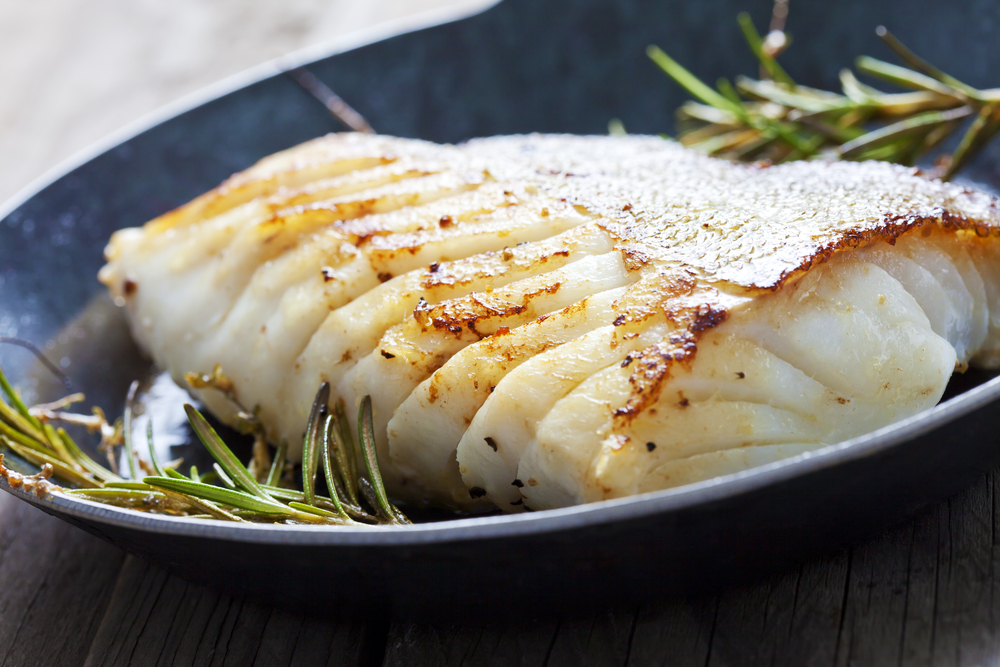
Some people react to certain types of fish, although this type of allergy isn’t as common as milk or eggs. Symptoms could include hives, nausea or indigestion, asthma, and headaches [13].
6. Shellfish
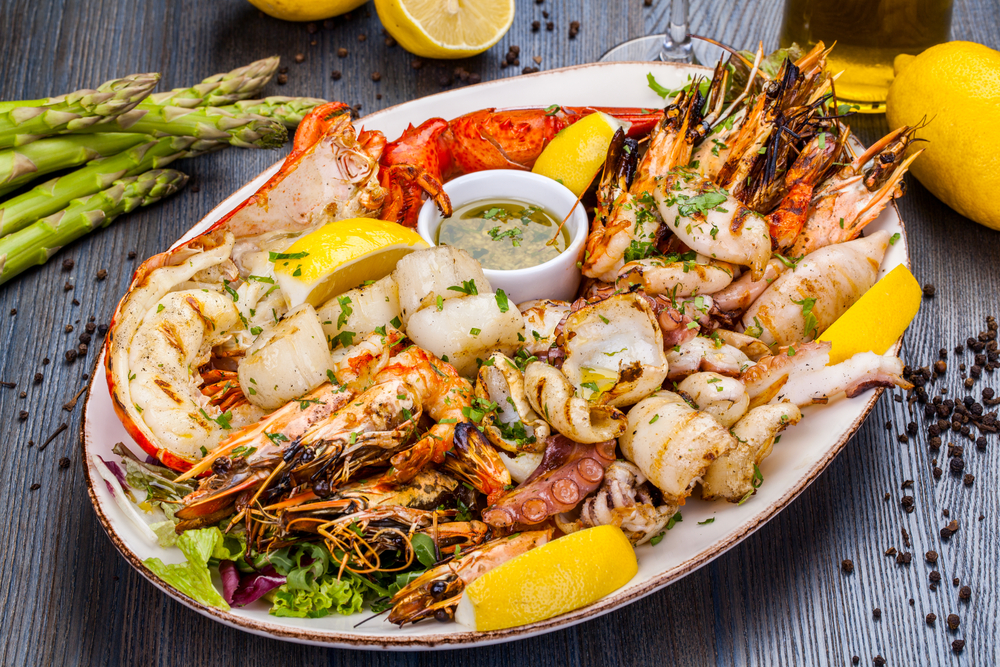
Shellfish include crabs, lobster, and shrimp, although people with this allergy may also need to avoid oysters and mussels as well [14].
Read More: Do Apple Cider Vinegar Baths Help Eczema?
7. Nuts
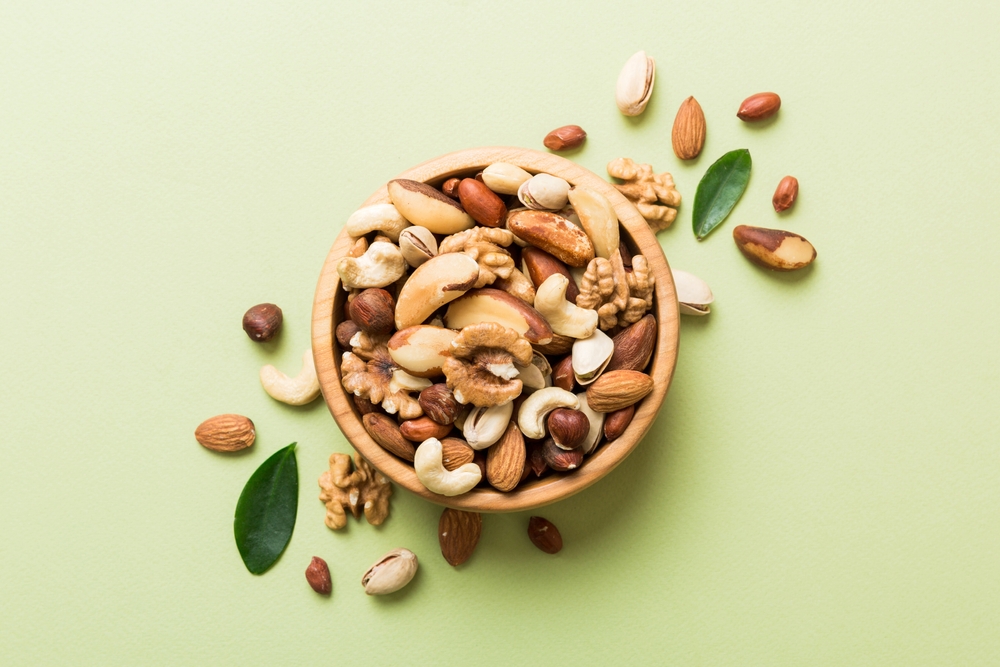
A nut allergy is another common type of allergy and can consist of an allergy to nuts, seeds, and peanuts (which are actually a type of legume, in the same class as beans). People could react to cashews, walnuts, almonds, sesame seeds, or even coconut [15].
8. High Sugar Foods
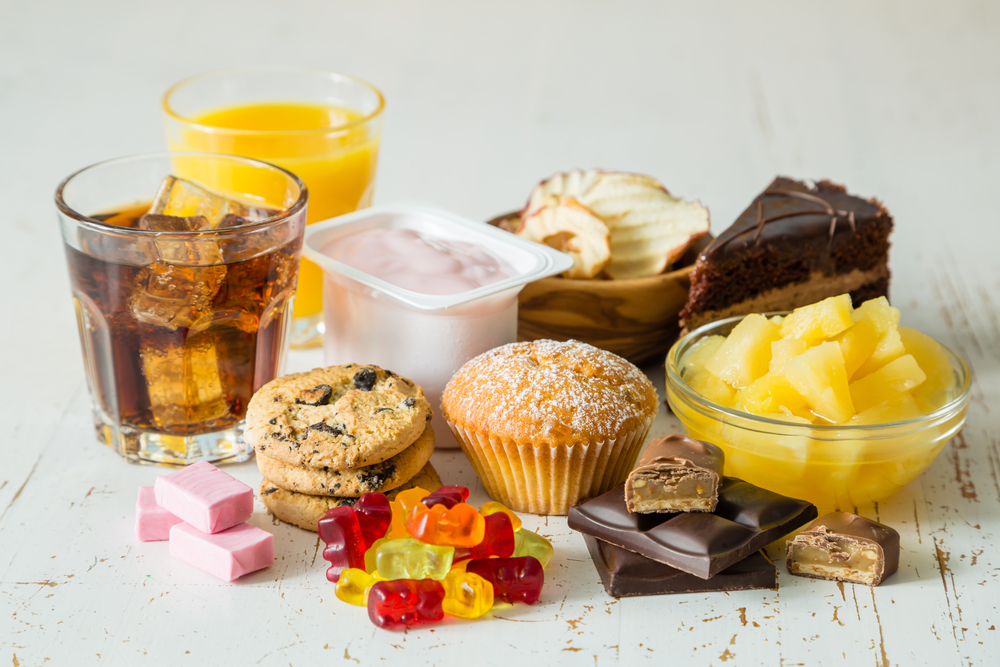
Refined sugar can have an inflammatory effect on the body, especially if consumed frequently or in high doses, and lead to different effects on the gut that could even trigger a leaky gut [16].
9. Foods High in Nickel
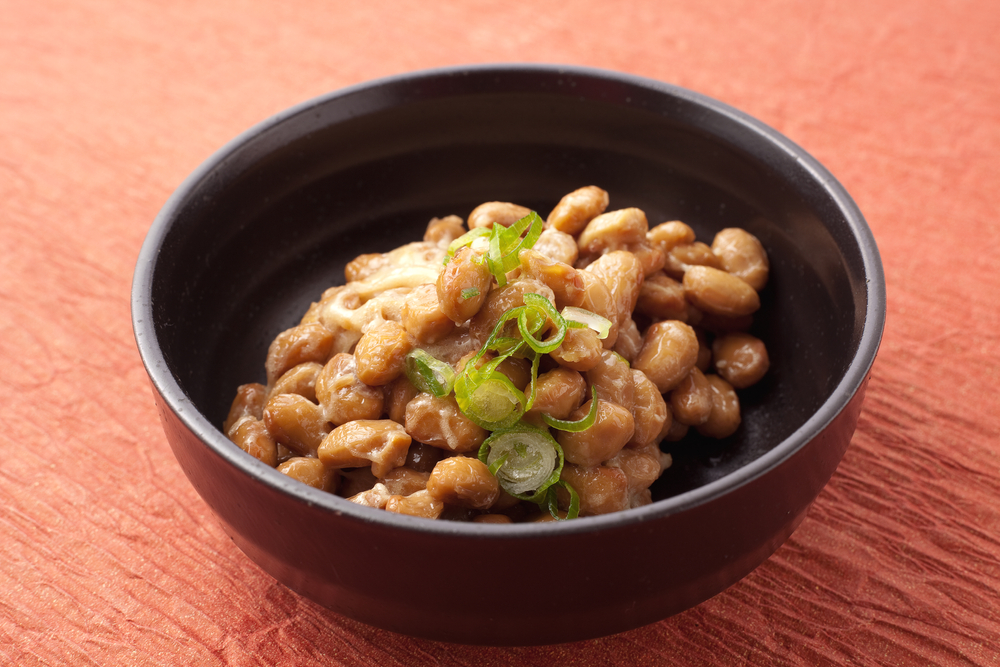
Foods high in nickel could trigger dyshidrotic eczema and include foods such as beans, black tea, chocolate, nuts, peas, seeds, shellfish, and soybeans (which, ironically, are a lot of foods on this list!) [17].
Foods You Can Enjoy That May Help Eczema
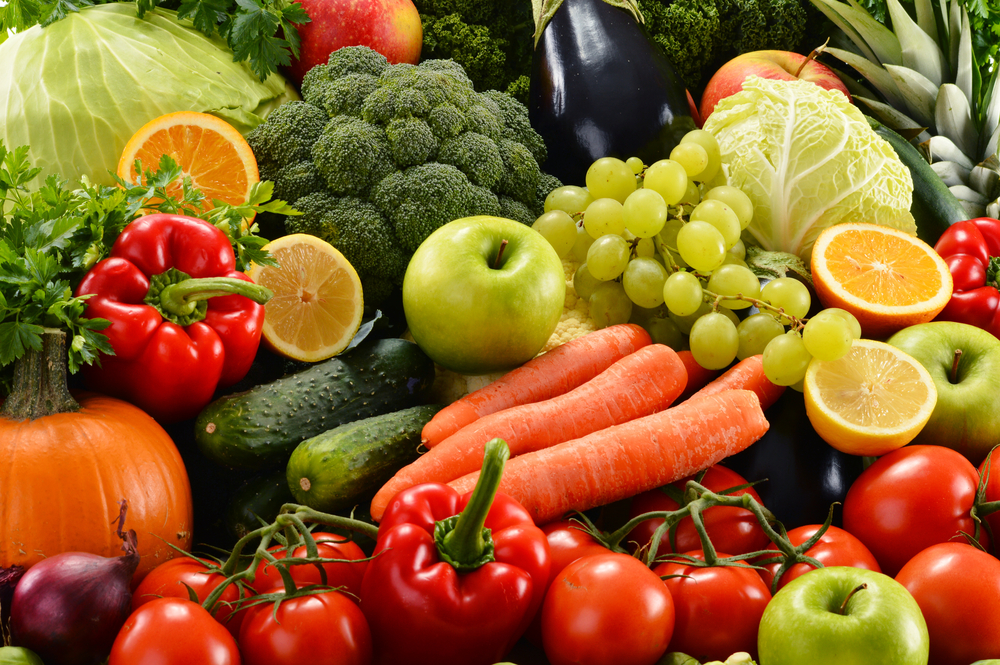
There are certain foods that have the potential to help your eczema, including foods high in quercetin, which is a flavonoid (a type of phytonutrient) that may help reduce inflammation. Foods include fruits such as apples, blueberries, and cherries and vegetables such as broccoli, spinach, and kale [18].
If you don’t have a fish allergy or intolerance, fish are a powerful source of omega-3s. While natural foods are the best way to get essential omega-3s, supplementation is also an option. Vegan supplements are available that can provide helpful EPA/DHA omega-3s, such as from algae oil [19].
Foods high in probiotics—given they’re not made from milk, especially if you are intolerant—can benefit your body. Plant-based sources include miso (which is soy, so be careful), kimchi, kombucha, sauerkraut, and water kefir. Supplementation is also a viable route, but make sure they are either free of dairy or any potential allergens you may be trying to avoid.
Conclusion
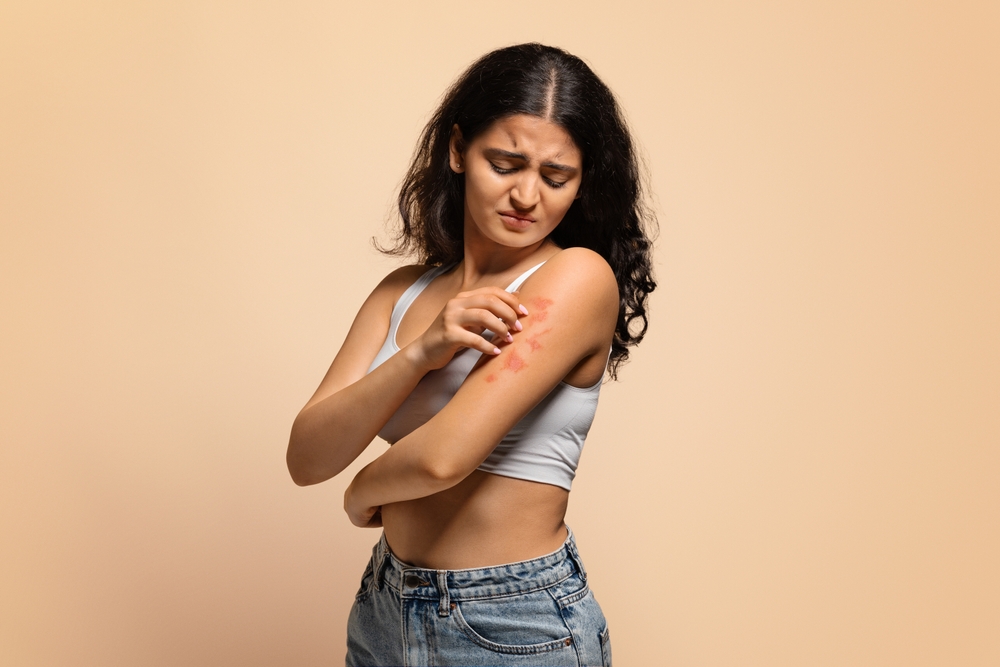
Foods may be able to help your eczema, or you can work with your natural healthcare provider to get tested for food intolerances or potentially try an elimination diet. For those who have dyshidrotic eczema, avoiding contact with nickel (yes, this includes jewelry) may help. A diet focused on nutrient-rich foods can help, but remember that food isn’t the only culprit, and everyone is different!
Read More: Psoriasis and Eczema Sufferer Created Diet That ‘Cured Her’ and is Helping Thousands of Sufferers
Sources
- https://www.mayoclinic.org/diseases-conditions/atopic-dermatitis-eczema/symptoms-causes/syc-20353273
- https://nationaleczema.org/eczema/types-of-eczema/dyshidrotic-eczema/
- https://nationaleczema.org/eczema/types-of-eczema/
- https://www.medicalnewstoday.com/articles/14417.php
- https://nationaleczema.org/eczema/treatment/
- https://www.healthline.com/health/skin-disorders/eczema-diet
- https://www.thegreenwritingdesk.com/heal-leaky-gut-tea-herbs/
- https://www.wellness.com/blog/13278817/what-is-leaky-gut-and-why-you-should-know/jenn-ryan
- https://acaai.org/allergies/types-allergies/food-allergy/types-food-allergy/egg-allergy
- https://www.foodallergy.org/common-allergens/milk-allergy
- https://www.nongmoproject.org/high-risk/soy/
- https://www.ncbi.nlm.nih.gov/pubmed/16436335
- https://acaai.org/allergies/types/food-allergies/types-food-allergy/fish-allergy
- https://www.foodallergy.org/common-allergens/shellfish-allergy
- https://www.betterhealth.vic.gov.au/health/ConditionsAndTreatments/nut-allergies
- https://www.health.harvard.edu/blog/leaky-gut-what-is-it-and-what-does-it-mean-for-you-2017092212451
- https://www.medicalnewstoday.com/articles/320855.php
- https://www.medicalnewstoday.com/articles/320855.php
- https://www.nutrasea.ca/products/nutravege
